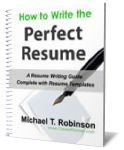"Music Composers and Arranger"
Job Description - Part 1 - Duties and Tasks
Basic Job Description:
Write and transcribe musical scores.
Part 1
Duties / Tasks
Part 2
Activities
Part 3
Skills
Part 4
Abilities
Part 5
Knowledge
Job Duties and Tasks for: "Music Composers and Arranger"
1) Write musical scores for orchestras, bands, choral groups, or individual instrumentalists or vocalists, using knowledge of music theory and of instrumental and vocal capabilities.
2) Confer with producers and directors to define the nature and placement of film or television music.
3) Explore and develop musical ideas based on sources such as imagination or sounds in the environment.
4) Rewrite original musical scores in different musical styles by changing rhythms, harmonies, or tempos.
5) Study films or scripts to determine how musical scores can be used to create desired effects or moods.
6) Create original musical forms, or write within circumscribed musical forms such as sonatas, symphonies, or operas.
7) Transpose music from one voice or instrument to another to accommodate particular musicians.
8) Study original pieces of music to become familiar with them prior to making any changes.
| Thanks for visiting CareerPlanner.com | ||

|
1) Use Career Testing to find the perfect career 2) Is your resume getting you enough interviews? |
 |

|
Thanks for visiting CareerPlanner.com 1) Use Career Testing to find the perfect career 2) Is your resume getting you enough interviews? |
 |
9) Arrange music composed by others, changing the music to achieve desired effects.
10) Guide musicians during rehearsals, performances, or recording sessions.
11) Fill in details of orchestral sketches, such as adding vocal parts to scores.
Is being a "Music Composers and Arranger" your very best career choice?
Our Career Interest Test will show you which careers match your interests.
Our Free Personality Test will show you which careers match your personality and why.
12) Write music for commercial mediums, including advertising jingles or film soundtracks.
13) Use computers and synthesizers to compose, orchestrate, and arrange music.
14) Write changes directly into compositions, or use computer software to make changes.
15) Accept commissions to create music for special occasions.
16) Collaborate with other colleagues, such as copyists, to complete final scores.
17) Copy parts from scores for individual performers.
18) Apply elements of music theory to create musical and tonal structures, including harmonies and melodies.
19) Determine voices, instruments, harmonic structures, rhythms, tempos, and tone balances required to achieve the effects desired in a musical composition.
20) Experiment with different sounds, and types and pieces of music, using synthesizers and computers as necessary to test and evaluate ideas.
21) Transcribe ideas for musical compositions into musical notation, using instruments, pen and paper, or computers.
22) Score compositions so that they are consistent with instrumental and vocal capabilities such as ranges and keys, using knowledge of music theory.
Job Description for "Music Composers and Arranger" continued here...
Part 1
Duties / Tasks
Part 2
Activities
Part 3
Skills
Part 4
Abilities
Part 5
Knowledge
"Music Composers and Arranger" Holland / RIASEC Career Code: NA SOC: 27-2041.04
Click here for "Music Composers and Arranger" Jobs
See the Future Outlook and Educational Requirements for "Music Composers and Arranger"
Our Most Popular Career Planning Tools







